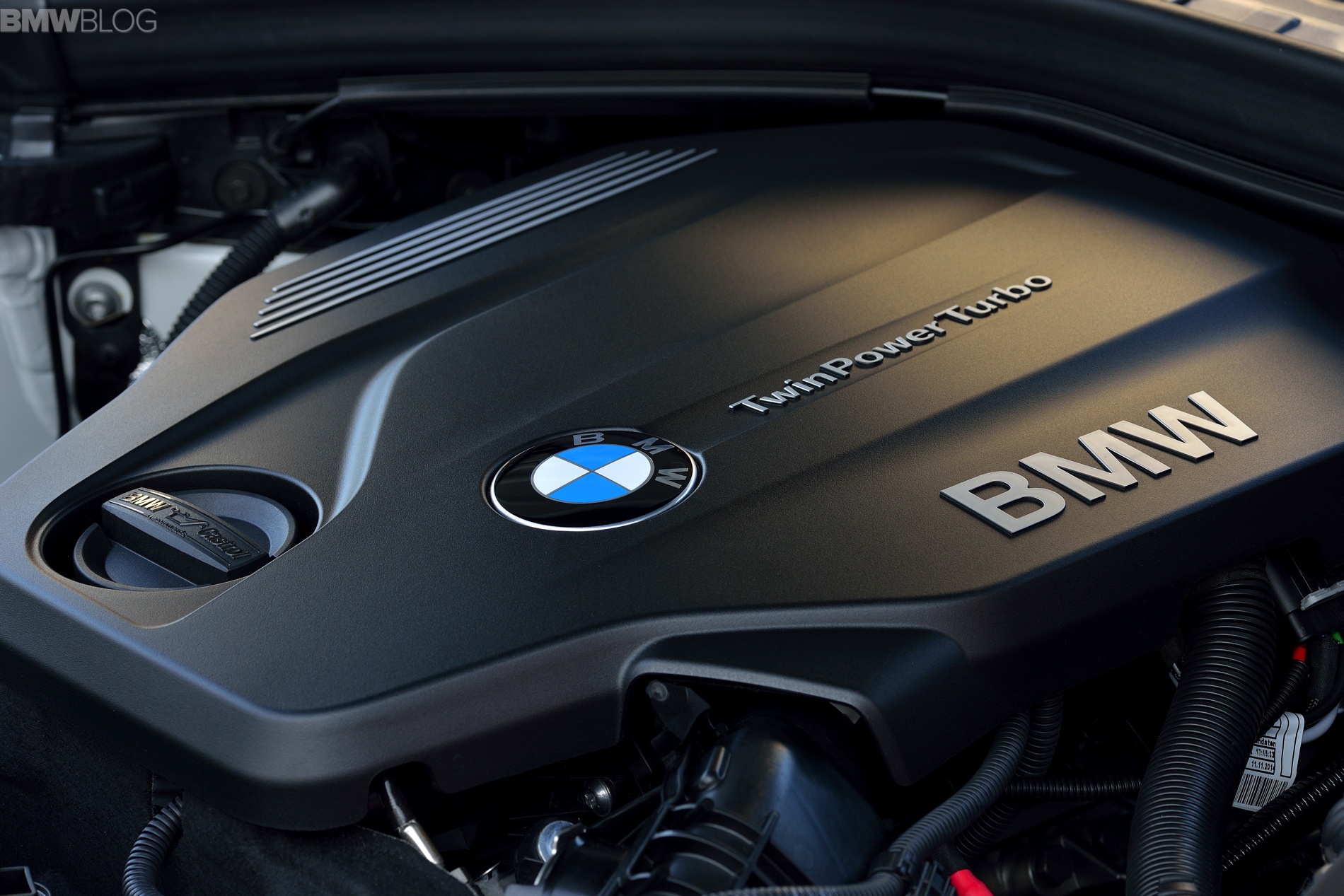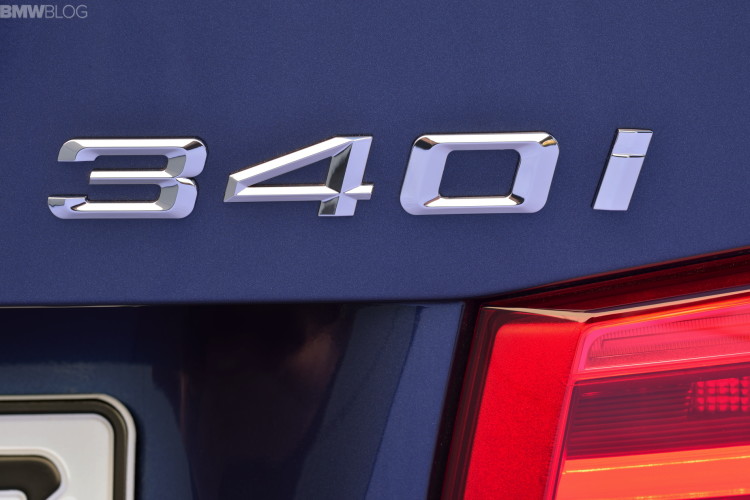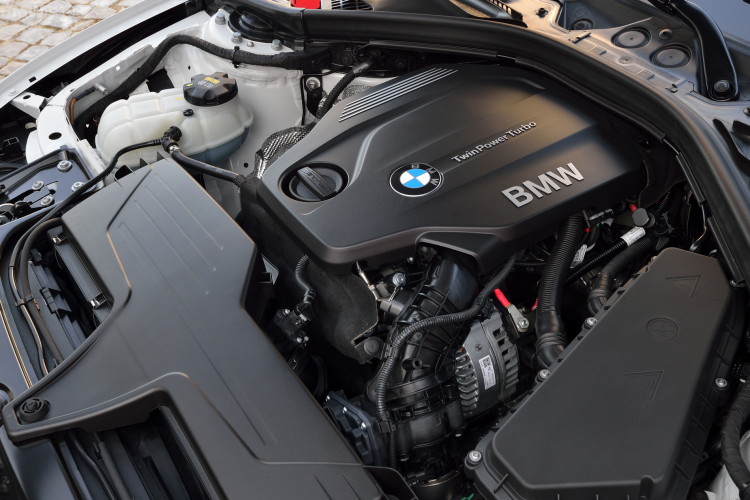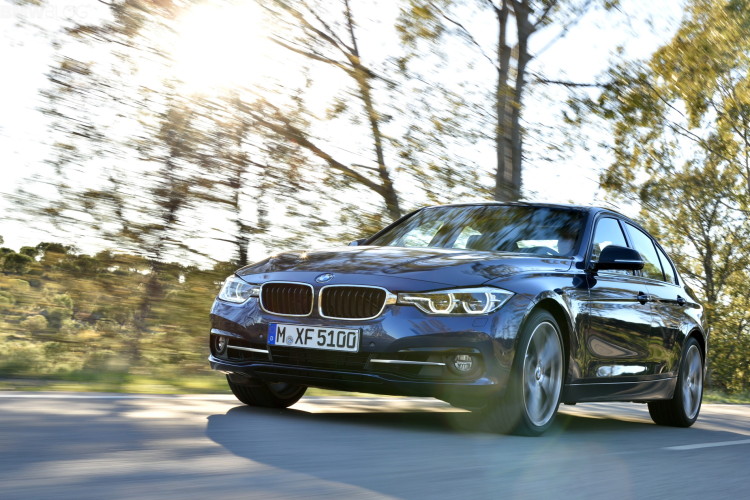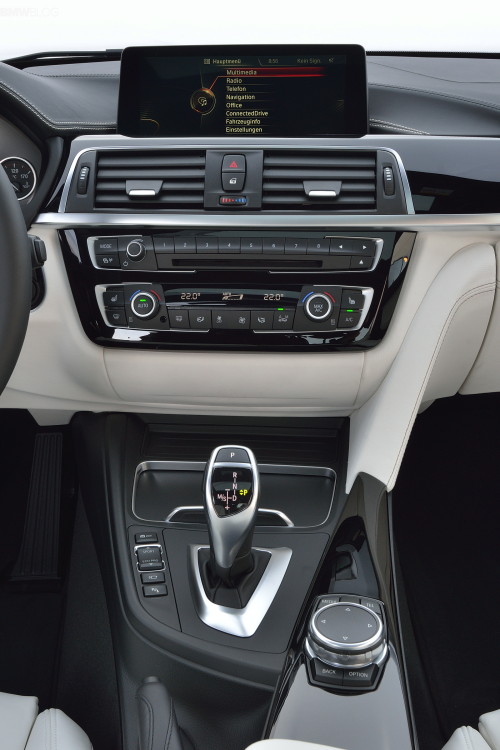With the upcoming LCI (Life Cycle Impulse) refresh of the F30 BMW 3 Series comes quite a few cosmetic changes to keep the car looking fresh. This is all well and good, but what’s more important than the looks are the changes underneath the hood. The F30 3 Series’ LCI, as it turns out, is going to be quite a large refresh, as it will be adding new engines across the lineup.
All markets included, the F30 3 Series will be receiving seven new engines. There will be four different petrol (gasoline for us Yanks) engines and seven different diesel engines, though three will be carried over.
All of the petrol engines and all four-cylinder diesel engines will be a part of BMW’s new EfficientDynamics modular engine family. The family will consist of three, four and six-cylinder engines and will all feature BMW’s latest TwinPower Turbo technology. The petrol-powered engines will integrate the turbocharger into the exhaust manifold, to create a shorter distance for the exhaust gases to travel, therefore reducing spool times and creating a faster response. These engines won’t be exclusive to the 3 Series, but will be featured among all BMWs moving forward, including the upcoming G11/G12 7 Series and G30 5 Series. This new modular engine design allows for better platform sharing of engines as well as lower development costs.
Each engine will carry an in-line design as well as a displacement of 500 cc per cylinder. They will be built using a thermally optimized, all-aluminum construction. The three and four-cylinder engines will implore balance shafts to optimize NVH (noise, vibration, harshness) and will all share motor mount, cooling and intake/exhaust design. This allows for lower costs and easier maintenance for both BMW and its customers, as well as smooth, reliable performance.
The upcoming BMW 318i, replacing the 316i, will feature BMW’s newest 1.5 liter three-cylinder engine and will produce 136 hp and 162 lb-ft of torque. The 318i should get up 5.5 liters per 100km, which equates to around 42 mpg here in the states. Though that is largely irrelevant, as we won’t be getting the 318i. Performance should be quite decent, especially considering its efficiency, with a 0-60 sprint taking just 8.9 seconds. If that doesn’t sound rapid to you, that’s because it isn’t. But it’s also coming from only three cylinders and gets over 40 mpg, so it’s pretty damn good.
The big news is the world debuts of BMW’s new four-cylinder and six-cylinder engines. The 2.0 liter, turbocharged four will make its world debut in the 320i and 330i. The engine in the 320i will develop 184 hp and 214 lb-ft of torque, while also being able to reach 5.9-6.3 liters per 100km. The engine in the 330i will develop 252 hp and 258 lb-ft of torque, allowing it to get 6.5-5.5 liters per 100km (36 mpg US). The 330i will also be able to reach 60 mph in 5.8 seconds, which is properly quick. It also greatly reduces carbon emissions from the outgoing 2.0 four.
The even bigger news is the announcement of the 3.0 liter turbocharged six-cylinder engine in the upcoming 340i. The 340i will be the first BMW to use the six-cylinder engine from the EfficientDynamics engine family. Replacing the outgoing 3.0 liter turbocharged six in the 335i, the 340i’s six will produce 326 hp and 332 lb-ft of torque and achieve 7.7-6.5 liters per 100km (30 mpg US). The new, all-aluminum six-cylinder engine will be both powerful and efficient, more so than the outgoing six. This new I6 engine has some mighty shoes to fill, as the outgoing six is beloved by enthusiasts everywhere for its silky-smooth power delivery, excellent powerband and lovely noise. BMW knows a thing or two about straight-six engines, so i’m assuming this new one should be just as good, if not better, than the outgoing engine.
All engines will be available with six-speed manual transmissions and eight-speed, ZF automatics. The manual features a dual-mass flywheel with centrifugal pendulum adjusters, which is a fancy way of saying it’s good. What this fancy tech does, though, is counteract uneven running on torquey engines to allow smoother upshifts and less booming noise. The manual will also feature rev-matching to bring the engine to the correct speed for the next gear change, up or down.
The new ZF eight-speed will be business as usual, as these automatics are fantastic gearboxes, but will have a few updates. Improved fuel economy will come due to reduced torque converter slip during gear changes. It will also kick into neutral when coasting downhill to further reduce fuel consumption, but will kick back into gear the instant more throttle is needed. The new automatic will also feature something called Proactive Driving Assist, which utilizes the navigation system to anticipate corners and roundabouts to assist the gearbox in keep the car in the correct gear for each situation. All cars will be available with BMW’s latest xDrive all-wheel drive system
The new LCI F30 Series aims to improve performance and efficiency while still keeping BMW’s iconic driving dynamics alive. Each of these improvements, by themselves, may seem insignificant. But when brought together as a whole, create a very intriguing package. Add all of these drivetrain updates to the refreshed looks and the new 3 Series is a complete package.


